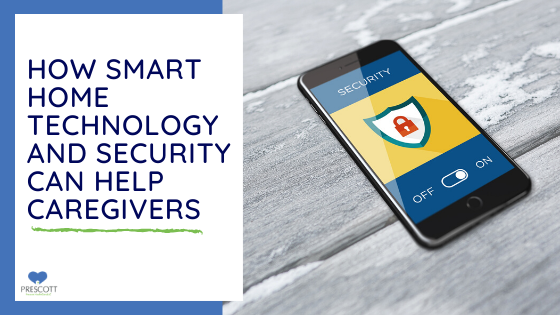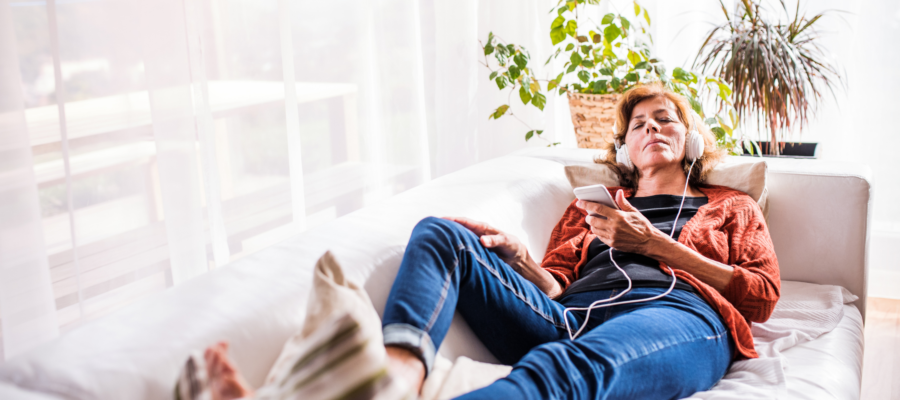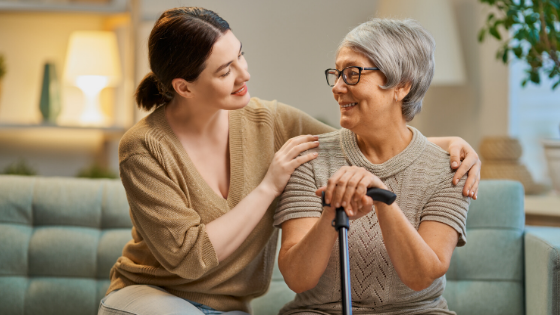Understanding Alzheimer’s Disease
Alzheimer’s disease is the most common type of dementia that causes thinking problems and behavior-related issues. Symptoms usually develop and become more severe over time, interfering with the patient’s ability to live independently. Because Alzheimer’s is a progressive disease, patients will slowly experience symptoms like memory loss.
A person with Alzheimer’s may have difficulty remembering their name or where they live, which often leads to wandering. In fact, six in 10 people with dementia will wander. Many patients at this stage require around-the-clock care, and if a family member is acting as a caregiver, this can become a stressful and emotionally taxing role. Wandering can be incredibly dangerous, but there are services available to help prevent it. Today’s emerging connected home technology can help people with Alzheimer’s live in their own homes for a longer period of time and lend the caregiver a helping hand in monitoring the patient.
Home Security Devices
- Security and smart home systems – Loved ones and caregivers can monitor an Alzheimer’s patient’s day to day activity with security and smart home systems. They relay information – like motion sensor or flood sensor activity – back to a wireless hub that allows you to monitor everything from a smartphone app. For example, you can set up motion sensors around entry points of the home, so if your patient is a wanderer, you will be notified in real-time on your smartphone if a door is opened.
- Door and window sensors– As mentioned above, door and window sensors (which are both types of motion sensors) are a great way to track coming and going activity. These sensors are designed to detect when a door or window is opened, and sends that activity to your home security or smart home system control panel or base station. Often times, your monitoring company is also notified of any activity triggered by these sensors, making it easier to prevent accidents like wandering.
- Security cameras– Home security cameras are a crucial aspect of monitoring and protecting your loved one living with Alzheimer’s. You can purchase indoor and outdoor security cameras that include the convenient features of smart home devices so you can always keep an eye on the patient. The latest security cameras will record HD quality video and send alerts to your phone when they detect motion.
- Video doorbells – Video doorbells are an extra set of eyes and ears that protect the entry point of the patient’s home. Not only is this a must have to track the whereabouts of your loved one, it’s also a great way to track anyone else that comes to the door. Someone with Alzheimer’s who orders a package may forget and leave it on the front doorstep, making it much more likely for someone to steal it. A video doorbell will record and store any activity that you can view from a smartphone app.
- Outdoor cameras – Place outdoor cameras at any entry point of the home – including the front door area, garage, back door, etc. for a comprehensive view of any and all activity around the outside of the home. Outdoor cameras are useful in pinpointing the direction and time of day your loved ones leave the home and also capture other activity that needs monitoring.
- Fall detection– Fall detection is a feature of many medical alert systems that automatically alert the system provider or emergency responders when a fall occurs. Keep in mind that medical alert systems with fall detection may not detect every fall and may send false alarms, so pairing this tool with other devices like security cameras will give you a more accurate view of when your loved one falls.
Medical Alert Systems
- Wearables (pendants)– Medical alert wearable devices are an excellent option for patients with Alzheimer’s because it will monitor and track patient activity no matter where they are. These come in the form of a wearable pendant, bracelet or even a smart watch and are equipped to call for help with the press of a button. Many of these devices are also designed to send instant medication reminders and upcoming doctor’s appointments, making this the perfect option for early Alzheimer’s patients that are living independently.
- GPS trackers– Many medical alert systems also come with built in GPS tracking. This allows you to track the whereabouts of your loved one at any time. There are other options for GPS tracking that don’t involve a medical alert system. “The first thing we always tell our clients to do is install a GPS tracker in their loved ones’ phone. People with Alzheimer’s disease are often confused, lost and tend to roam. It can happen at any time,” says Naeesa Aziz, Home Healthcare Administrator at Prescott HealthCare, LLC. “Because the disease can progress slowly or in an erratic fashion, having that tracker can give you peace of mind knowing that you can locate your loved one whenever.”
Companies that specialize in both home security systems and medical alerts
- ADT Health – ADT, one of the country’s leading home security companies, provides medical alert systems under ADT Health. Their services feature fall detection and GPS location tracking.
- Philips Lifeline– As a longstanding provider of security systems, Philips offers something called Philips Lifeline, designed to give seniors and their families greater peace of mind.
- GetSafe– GetSafe provides both wireless home security and medical alert systems. In-house coverage doesn’t require a wearable device and features a mobile help button with an accompanying app that allows caregivers to keep an eye on loved ones.

About Prescott HealthCare, LLC
Prescott HealthCare is a family owned and operated private home care provider dedicated to giving Atlanta area families safe, personalized care right in the comfort of home.
Our certified aides help people with daily activities like:
| Dressing and grooming | Bathing and hygiene |
| Incontinence care | Medication reminders |
| Meal preparation and serving | Companionship |
| Errands | Escorting to appointments |
If you are interested in learning more about how we can help you at home, contact us anytime at: 404-883-3302 or right here online.




